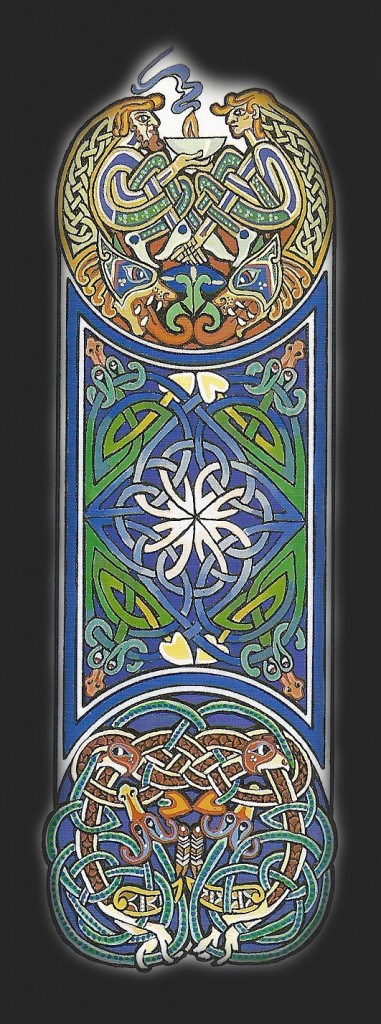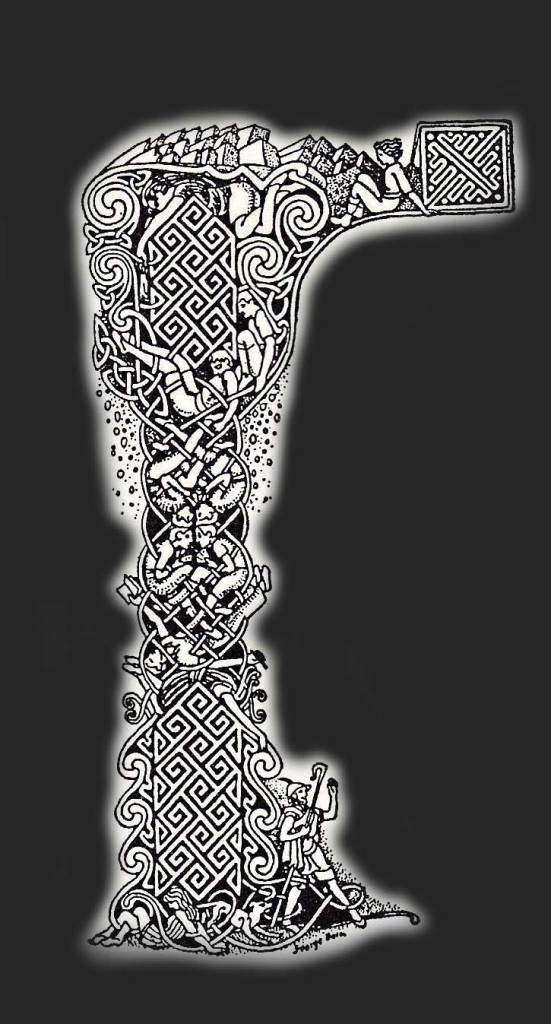 Important vitamins.
Important vitamins.
The most important vitamins and in which they sit.
They support skin and hair health, affect metabolism, support certain body developments and take over protection functions. Without vitamins, the dog cannot use the proteins, carbohydrates and fats from the feed. In small quantities they are of vital importance but cannot be made by the body or not in sufficient quantities.
Every animal species needs its own vitamins.
One of the best-known vitamins, with capital C, cannot create man himself. Most mammals, including dogs, can do so. They cannot create others to be added over the feed. The vitamins need also depends on age, disease and other factors such as gestation and lactation.
Vitamins should be dosed exactly.
Vitamin deficiency by one-sided or wrong diet can endanger the health of a dog but too much can endanger the health. Vegetarians, preparers and barfers should therefore know exactly the vitamins needs of their dog.
One differentiates fat soluble-and water-soluble vitamins.
As fat soluble vitamins The vitamins A, D, E and K are identified, which can be stored by the body. In chronic overdosing with these vitamins it can lead to a poisoning with health problems. This applies to the vitamins A and D. Vitamin B and C are water soluble, the excess is excreted immediately with the urine.
Change the vitamin content in natural additives.
Liver For example is an excellent vitamin supplier (vitamin A, B2 and B12). But not every beef liver has the equal amount of vitamin A.
When preparing and storing dog food, vitamin loss can occur.
Different vitamins are heat, oxygen and light sensitive. For example, in the preparation of canned food, the heat and high pressures mainly waste vitamin B1 and folic acid. When preparing dry food, the high temperatures of vitamins A, B2, B9, B3 and B7 are lost. Light and air also influence the vitamin content, especially when the bag is opened. To avoid loss, the feed will have to be stored dry and at room temperature. In addition, each feed manufacturer must guarantee the expiration of the expiry date, that the vitamin content in the feed for the dog is opaque and therefore the vitamin loss through the preparation process and the storage factoring.
Dogs do not know the autumn cold.
In the autumn, the dog does not notice any higher susceptibility to infections as in humans. In the case of hair and autumn weather, a well-balanced diet is sufficient. A healthy dog, which receives a complete feed in his food bowl, does not need any vitamin additives. Those important substances must be present in a complete feed, which allows it to be called.
Fat-soluble vitamins:
Vitamin A supports eyesight, bone growth and skin functions such as cell renewal. Unlike cats, dogs, the plant-beta carotene, can convert to vitamin A. Important for people who prepare themselves; Beta carotene is oxygen and light sensitive. Therefore, vegetables must not be stored open and covered in cooking. Since the vitamin A need is not easy to cover in fresh food, it is recommended for barfers and self-food preparers, to have it calculated and possibly supplemented with supplements. Signs of a vitamin A deficiency include vision disturbances, dehydration of the skin, greater susceptibility to infections as well as respiratory problems. For vitamin A There is a height limit, the feed content must be on the packaging under “added substances”.
How much? Guideline: per day 75 – 100 IU/kg bodyweight, which is 22 – 30 micrograms per kilo of body weight.
For whom? Puppies, old and sick dogs equally bearing and lactating bitches, kidney patients.
Which? In liver, vislevertraan, egg yolk, milk, carrots, corn, in pumpkin and paprika is the prestage of vitamin A, the beta carotene.
Vitamin D promotes calcium and phosphorus absorption from the intestines and supports the growth of bones and teeth. In contrast to humans, dogs can apparently not create vitamin D in the skin. Kidney failer dogs or dogs with a disturbance in the galproduktie, need a higher dose of vitamin D, because this does not allow enough vitamin D to be absorbed from the intestine. Also bearing and lactating bitches need more vitamin D. An overdose of vitamin D results in a higher calcium and phosphate content in the blood. It can cause scaling of the barrels and kidneys. As for vitamin A, there is a statutory maximum value for vitamin D. The vitamin D content must be indicated on the labels exactly.
How much? Healthy, mature animals require 20 iu/kg of body weight per day, which is 0.25 micrograms per kilo of body weight.
For whom? Bearing, lactating bitches and sick dogs need more.
Which? Vitamin D is mainly found in fish, egg yolks, milk, milk products and liver. Particularly rich in vitamin D is Vislevertraan.
Vitamin E supports skin problems and strengthens the immune system of dogs. This vitamin is stored to a small extent in the fatty tissue of the liver. Together with the spore element selenium it acts as an antioxidant, also protects against cell ageing. A higher level protects the feed from decay, similarly unsaturated fatty acids or vitamin A are protected for oxidation.
How much? Per gram of unsaturated fatty acids, at least 0.6 mg of vitamin E will be in the feed.
For whom? Ageing and sick dogs, patients with diabetes mellitus, dogs with galproblemen and heart problems, similarly top athletes or dogs that are very fat.
Which? Corn and germs, wheat germ and sunflower oil, flax seed, parsley, red pepper and spinach.
Vitamin K for blood clotting. It is recorded with the feed but the dog can also create it itself, more precisely said, it is the intestinal bacteria that produce the vitamin K. A deficiency is due to the impairing of the intestinal flora, if, for example, a longer antibiotic treatment has killed many intestinal bacteria. Life Saving is vitamin K in a rat poison poisoning. This poison turns blood clotting off and the victim dies by inner bleeding. With a healthy dog and balanced diet it is not necessary to add vitamin K.
How much? Per day 16 micrograms per kilo of body weight, in the feed 60 – 210 micrograms/100 gram dry substance.
For whom? Sick dogs with damaged intestinal flora, liver disease or increased bleeding tendencies.
Which? Meat and vegetables, liver, cabbage, parsley and spinach.
Water-soluble Vitamins:
Vitamin B Complex. These water-soluble vitamins are important constituents of the enzymes that send the cell processes. Many of the water-soluble B vitamins are formed by intestinal bacteria, but a part must definitely be added to the feed. Antibiotic cures can have a negative impact on the workings of the intestinal bacteria. After a long-term antibiotic therapy, yeast is a good supplier of B vitamins. Beyond that, it can help rebuild the intestinal flora. Vitamin B Complex consists of; Vitamin B1 (thiamin), B2 (riboflavin), B3 (niacin or nicotine acid), B5 (Pantothenine), B6 (Pyridoxine), B7 (biotin), B9 (folic acid) and B12 (cobalamin). The most important B-vitamins are B1, B2, B7 and B12.
Vitamin B1. Is The most important co-enzyme for energy metabolism, takes part in the processes of energy extraction from carbohydrates, fats and proteins. In the case of growing and lactating animals, in very active dogs and also at very low ambient temperatures, the need for vitamin B1 increases, likewise when the diet is very carbohydrate-rich. Soaking and cooking touched vitamin B1 in water and is lost. Unilateral feeding of fish can cause a deficiency of vitamin B1. possible symptoms; Cramps, no appetite, nerve disturbances, circulatory disorders.
How much? Per day 20 micrograms per kilo of body weight, respectively 0.2 – 0.3 mg/100 grams for dry food.
For whom? Very active and animals with kidney, intestinal and stomach diseases.
Which? Yeast, pork, stomach and intestinal contents of herbivores.
Vitamin B2. Important for skin and hair, to gain energy from fats, decompose amino acids and energy metabolism. The very light-sensitive vitamin B2, also called Riboflavin, is created in the gastrointestinal tract. How much a dog needs depends on its growth stage. The need also increases at low ambient temperatures and strong physical activity.
How much? Normally per day 90 micrograms per kilo of body weight.
For whom? In the case of high energy needs, something in gestation and lactation, in diarrhea and in dogs on antibiotics.
Which? Yeast, liver, lung, stomach, cheese, egg, milk products.
Vitamin B7. has a positive effect on the carbohydrate, fat and protein metabolism. Biotin is indispensable for the production of keratin, the raw material for the skin, hair and nails. During the hair removal, the dogs change their fur within about 6 weeks, resulting in increased biotin and protein needs. Veterinarians recommend, to give dogs at the beginning of autumn or acute skin problems such as dull and brittle hair, hair loss, skin peel fresh or itching, extra biotin in the form of complete eggs and cottage cheese.
How much? Per day 2 micrograms per kilo of body weight or 8-20 micrograms per 100 grams of dry food.
For whom? Dogs with a dull coat and brittle nails and puppies.
Which? Yeast, liver, kidneys, boiled egg, molasses and milk.
Vitamin B12. Important for the production of red blood corpuscles, the function of nerve cells and the protein metabolism. In addition, this vitamin supports cell growth and cell division. This vitamin must be absorbed by the feed, can be put together in small quantity also in the intestines of the dog and stored in the liver. A short-term deficiency can be compensated for by the reserves in the liver, a long shortage of anemia and an increased fat content in the liver. Vegetarians need extra vitamin B12 as it only occurs in animal food.
How much? Per day 0.6 micrograms per kilo of body weight respectively 4-10 micrograms per 100 gram of dry food.
For whom? In stomach and intestinal diseases and lack of appetite.
Which? Liver, egg yolk, green pens, book stomach, heart and fish. 
Vitamin C supports the function of enzymes and strengthens the body’s own resistance. Dogs, unlike humans, can also be called ascorbic acid, such as vitamin C. They produce this substance, which makes the immunity stronger, in the liver and kidneys. In stress situations, which can also be very cold temperatures, dogs are able, to increase production. Only in exceptional cases such as large burns, infections, liver diseases, after surgeries and large growing puppies in the largest growth phase, vitamin C can be given extra. Older dogs can also tolerate a little more ascorbic acid than they create themselves because it counteracts the aging cell. Higher performance, for example in sled dogs, has shown a higher gift of vitamin C. Caution: A long-term gift of a high dose of ascorbic acid can cause the onset of stones in the urine and diarrhea in puppies.
For whom? Older dogs, performance dogs, dogs with a weaker immune system due to an acute infection, dogs that heal a wound and dogs with liver diseases can use more vitamin C.
Which? Vitamin C is in lettuce, citrus fruits, berries, parsley, potatoes, milk and liver.

